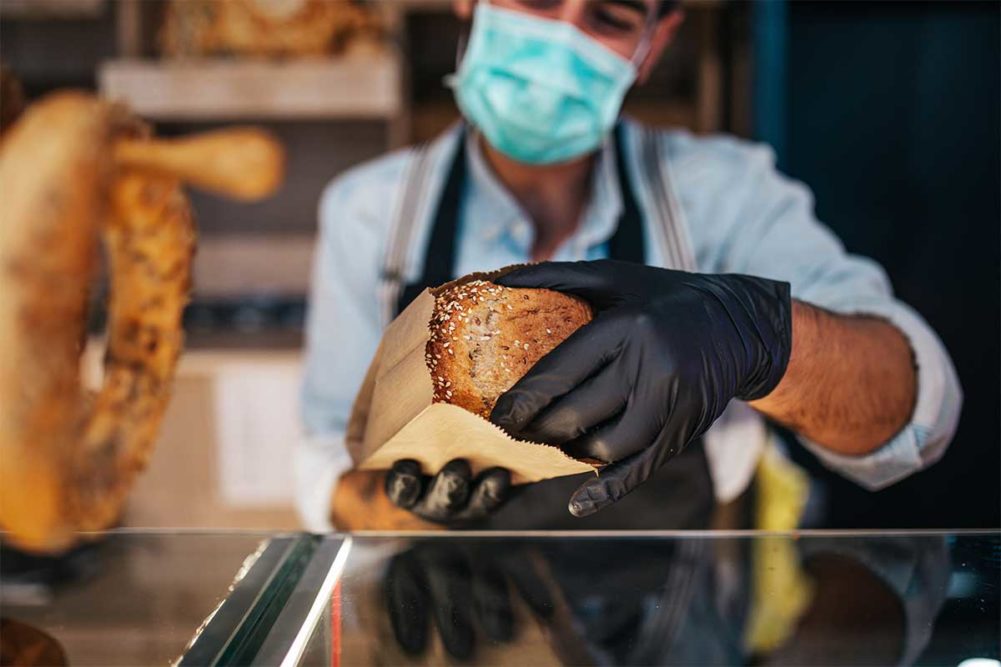WASHINGTON — The impact of the coronavirus (COVID-19) pandemic continues to be felt throughout the wholesale baking industry in channel performance, supply chain issues and workforce challenges, according to the panel discussion around industry pulse surveys conducted by Cypress Research and sponsored by Lesaffre and Red Star Yeast Co. The American Bakers Association (ABA) partnered with Sosland Publishing Co. to continue monitoring the US wholesale bakers’ perceptions of the pandemic’s impact through the end of 2020.
The panel was a part of ABA’s virtual convention program and moderated by Marjorie Hellmer, president, Cypress Research. Panelists included Lee Sanders, ABA’s senior vice president of government relations and public affairs; Bill Hanes, vice president of marketing and strategy, Lesaffre and Red Star Yeast Co.; Felipe Velasquez, director of operations, AbiMar Foods, Abilene, Texas; and Bob McGuire, vice president, director of logistics for Alpha Baking Co., Chicago.
Across the retail, dollar and c-store channels, much of the sales disruptions for wholesale baking had moderated from March 2020’s industry pulse survey to December’s. However, the data Ms. Hellmer presented showed that foodservice has yet to see any significant recovery. Still 83% of bakers reported sales for foodservice were down in the December 2020 study as compared to 93% in March and 96% in June.
“We still see a quarter of bakers reporting a decrease in production due to the COVID-19 pandemic, and this is likely a reflection of the channel vulnerability we saw,” she said.
To meet this shifting marketplace that happened almost overnight, bakers, suppliers and associations had to pivot quickly. Ms. Sanders reflected on the early work ABA did to secure bakers’ status as a part of critical infrastructure as well as advocating for regulatory flexibility for the industry.
Mr. Hanes recalled the dry yeast shortages and steps taken to keep bakers running, from how Lesaffre’s tech team worked with bakers to convert to compressed yeast to ease demand and how third-party co-packers helped fill gaps.
Mr. Velasquez and Mr. McGuire noted that streamlining and finding efficiencies were critical to being able to meet their customers’ shifting demands.
“One of our strategies was to work with our customers to simplify so we could deliver what they needed,” Mr. Velasquez said. “We reviewed the performance of some SKUs that weren’t performing as well. I think this trend will continue. Companies are seeing a big improvement in output because of this strategy.”
Alpha Baking implemented best practices and reallocated routes to retail to make distribution as efficient as possible.
“We shifted away from doing everything great to emphasizing doing good at what was needed,” Mr. McGuire said. “We focused on our employees and went back to the drawing board to the old stuff that works — the basics — we pulled out every trick we know when it came to routing efficiently.”
Supply chain disruption was another area bakers saw an impact from the pandemic, reflected in Cypress’ research. While in March 2020, wholesale bakers were only starting to see some disruption across ingredients, packaging and equipment by December, the percentage of bakers reporting severe disruption had grown significantly. And wholesale bakers were not expecting it to improve quickly.
“By the middle of 2021, bakers expect to only see slight improvement in their supply chain performance,” Ms. Hellmer pointed out. “This points to ongoing expectations of 20% to nearly a third of bakers who expect to continue their experiences with major to severe disruptions in their ingredient, packaging and equipment supply chains. And 4 in 10 expecting major to severe disruptions in transporting & distributing their products.”
Cypress also reported that increased raw material costs, as well as transportation and logistics costs, ranked among the top business challenges bakeries faced at the end of 2020.
The pandemic also has exacerbated already existing industry workforce challenges according to findings from Cypress Research. Sixty-eight percent of bakers reported absentee rates for frontline workers were higher than typical in the fourth quarter of 2020. Sixty-two percent of respondents were also concerned about the availability of frontline workers in the first six months of 2021. This was true despite high unemployment rates likely because people are currently more interested in working from home and less interested in the hours baking companies need frontline staff to work.
Mr. McGuire spoke about becoming as productive and efficient as possible in the short term to offset workforce challenges and increased demands. Mr. Velasquez pointed to the investment in workforce development to make baking companies more attractive to potential employees.
“It’s not just hiring, but we need to develop the talent,” Mr. Velasquez said. “Employees have a lot of options, and we need to provide them an employment option in which they will develop a career.”
All of the panelists spoke to key lessons they learned in 2020 to help them better prepare for the next crisis the industry faces. Communication —with customers and employees — was a common theme.
“We were dealing with a lot of fear because we didn’t know what was coming,” Mr. Velasquez said. “We learned how important a deep connection with our people was. We had a social pact with our employees to keep them safe and for them to behave safely.”
Mr. McGuire pointed out there is no teacher quite like experience.
“None of us were prepared for what took place last year,” he said. “I would say you stay true to yourself and what’s important to your company. We stayed true to our employees, and if we erred, we’re erred on the side of employee safety and wellness.”






